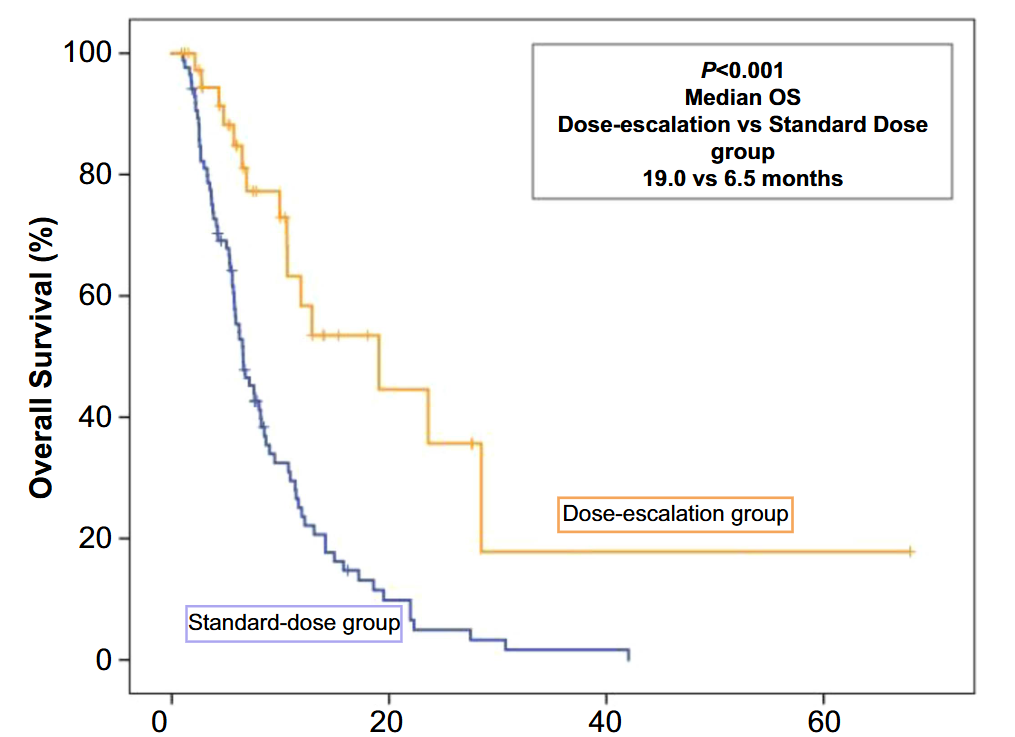Prognostic factors for regorafenib treatment in patients with refractory metastatic colorectal cancer: A real-life retrospective multi-center study
DOI:
https://doi.org/10.17305/bb.2023.9253Keywords:
Regorafenib, metastatic colorectal cancer (mCRC), dose escalation, dose interruption, progression-free survival (PFS), overall survival (OS)Abstract
Regorafenib, an oral multikinase inhibitor, has improved survival in metastatic colorectal cancer (mCRC) patients who have progressed on standard therapies. Our study aimed to evaluate prognostic factors influencing regorafenib treatment and assess the optimal dosing regimen in a real-life setting. We retrospectively analysed 263 patients with mCRC from multiple medical oncology clinics in Turkey. Treatment responses and prognostic factors for survival were evaluated using univariate and multivariate analysis. Of the patients, 120 were male, and 143 were female; 28.9% of tumors were located in the rectum. RAS mutations were present in 3.0% of tumors, while BRAF, K-RAS, and N-RAS mutations were found in 3.0%, 29.7%, and 25.9% of tumor tissues, respectively. Dose escalation was preferred in 105 (39.9%) patients. The median treatment duration was 3.0 months, with an objective response rate (ORR) of 4.9%. Grade ≥ 3 treatment-related toxicity occurred in 133 patients, leading to discontinuation, interruption, and modification rates of 50.6%, 43.7%, and 79.0%, respectively. Median progression-free survival (PFS) and overall survival (OS) were 3.0 and 8.1 months, respectively. RAS/RAF mutation (hazard ratio [HR] 1.5, 95% confidence interval [CI] 1.1-2.3; P = 0.01), pretreatment carcinoembryonic antigen (CEA) levels (HR 1.6, 95% CI 1.1-2.3; P = 0.008), and toxicity-related treatment interruption or dose adjustment (HR 1.6, 95% CI 1.1-2.4; P = 0.01) were identified as independent prognostic factors for PFS. Dose escalation had no significant effect on PFS but was associated with improved OS (P < 0.001). Independent prognostic factors for OS were the initial TNM stage (HR 1.3, 95% CI 1.0-1.9; P = 0.04) and dose interruption/adjustment (HR 0.4, 95% CI 0.2-0.9; P = 0.03). Our findings demonstrate the efficacy and safety of regorafenib. Treatment line influences the response, with dose escalation being more favorable than adjustment or interruption, thus impacting survival.
Citations
Downloads

Downloads
Additional Files
Published
Issue
Section
Categories
License
Copyright (c) 2023 Sabin Goktas Aydin, Engin Eren Kavak, Atakan Topcu, Ayberk Bayramgil, Fahri Akgul, Seda Kahraman, Musa Baris Aykan, Yunus Emre Altıntas, Kaan Helvaci, Yuksel Urun, Ahmet Bilici, Mesut Seker, Mehmet Ali Nahit Sendur, Omer Fatih Olmez, Ozgur Acikgoz, Irfan Cicin

This work is licensed under a Creative Commons Attribution 4.0 International License.
How to Cite
Accepted 2023-06-02
Published 2023-11-03









